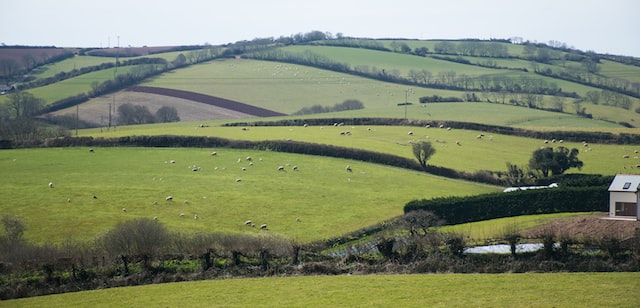Brexit Britain: Grow-your-own-salad country Vs start-up nation

What’s a sustainable ambition for Brexit Britain? Not to become a start-up nation but to grow your own salad.
I kid you not. It’s true.
In the short term, the only way to reliably get ingredients for a salad (the usual lettuce, tomato, cucumber) is if you grow your own.
If you want to know just how bad things are in Britain today – in the sense of disconnectedness from the land and the food supply chain – have a listen to Abi Reader. She is a leader of British farmers and a third-generation farmer herself.
Ms Reader was interviewed by BBC domestic radio on February 26. The link is here – Ms Reader’s interview starts at 10:20.
As deputy leader of the National Farmers Union (NFU) Cymru, Ms Reader’s views on food shortages in Britain count. She predicts the situation will only get worse. This, on account of a mix of reasons: poor procurement prices for produce; high energy and fertiliser costs because of the Ukraine war and the Brexit effect on the availability of skilled labour. If the (Conservative) government doesn’t want us to blame Brexit then we must blame the government, said Ms Reader.
The NFU’s deputy president, Tom Bradshaw, has already said the salad shortage was indirectly caused by Brexit because it forced the UK to look for longer supply chains: “It’s really interesting that before Brexit we didn’t used to source anything, or very little, from Morocco but we’ve been forced to go further afield and now these climatic shocks becoming more prevalent have had a real impact on the food available on our shelves today.”
That dismal situation is only set to grow darker. Ms Reader said right now, it’s not viable for British farmers to invest money, effort and time to grow food.
Ms Reader knows her onions. Not only is she second in command at the Welsh farmers’ union, she runs Goldsland Farm in partnership with her parents and uncle just outside Cardiff. Their farm has 200 milking cows, 150 sheep, 90 beef cattle and 120 acres of arable land. What’s more, Ms Reader was formerly Wales Woman Farmer of the Year.
It is sad to hear the story she tells for it is one of rising despair, an unnatural combination of apathy, animosity and hopelessness.
(Click here for my October 2021 blog on why Britain would benefit from a robust Community Supported Agriculture scheme, as in the United States, by means of which families buy local food directly from farmers, thereby eating healthily and providing stability to local growers.)

